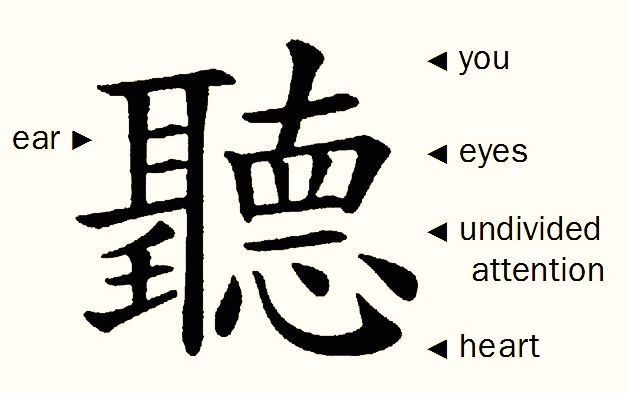Most of the successful people I’ve known are the ones who do more listening than talking.”
Bernard M. Baruch
I want you to do a quick mental exercise. Think about your conversations over the past six (6) months, but only focus on the individuals that consistently gave you their full, undivided attention. Take a few moments. These individuals were genuinely interested in what you had to say. They made you feel like each conversation you had with them, at that particular moment, was their only priority. In my case, I could only think of a handful, but these individuals certainly did have one obvious commonality — they are all great listeners.
Listening is an Acquired Art

Distinct from hearing, which is innate, listening is an acquired art — and a very strategic one at that. Listening is both fact-finding and intelligence-gathering from clients, customers, stakeholders, and the employees who are on the front lines of the marketplace. Yet, it is priceless to the person to whom you are listening, and the skill is absolutely essential for you, as manager and as an individual, both in your professional and your personal life, to be truly effective.
Being a good listener actually attracts people to you. Everyone likes talking with someone who makes them feel heard. The more people who are willing to speak with you, open up with you, the more opportunities (social opportunities, life opportunities, work opportunities, etc.) will come your way. Good listeners have a competitive advantage: they get promotions, they are more frequently selected for leadership positions, and they are often better informed because of their ability to build trust.
Listening Aids Customer Experience
When customers feel listened to, valued, and important to a company, it’s rare. That’s because great service and effective communication are more than a set of skills. It’s a cultural mind-set of respect and accountability where you do what you say you’re going to do for the customer. Zappos truly models that mind-set, and it’s part of the reason that their customer experience is so exemplary.
Lastly, it is always necessary to remember that the purpose of listening is to understand; it is not intended just for the sake of being able to answer or reply to someone. Therefore, one must always be open to the ideas and information being conveyed, and avoid the tendency to make assumptions and generalizations. With that being said, listening is, and will continue to be, the language of leaders.
Dr. Stephen Covey, mentioned in the video below that, when you “really listen to another, in-depth, until they feel understood, you are communicating their worth, their potential”. People appreciate, respect and value others who are great listeners. I know I certainly do.



